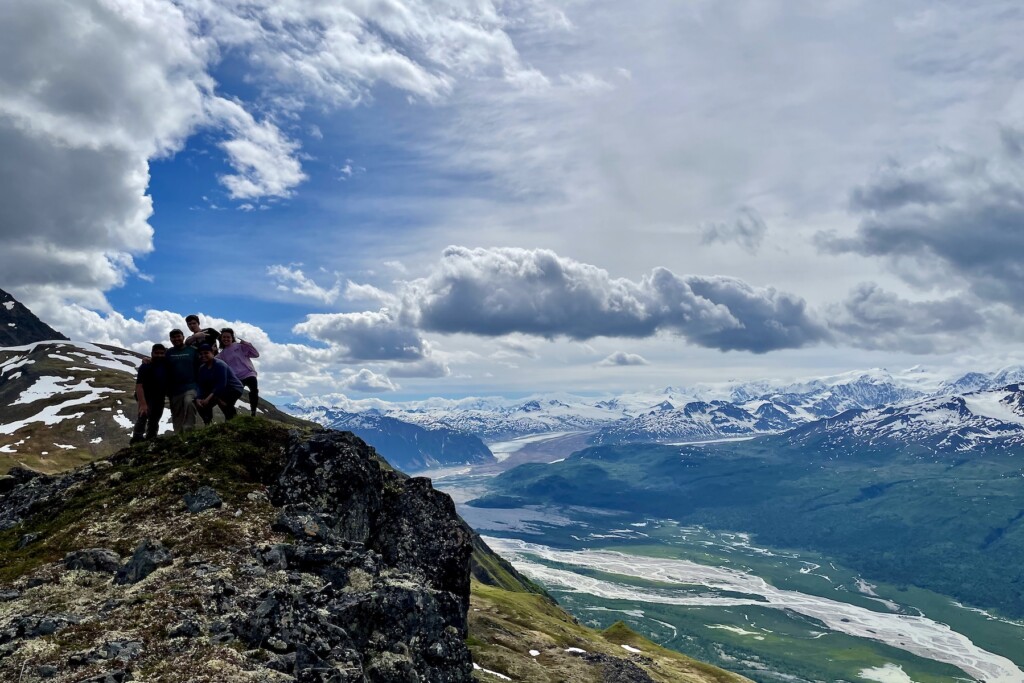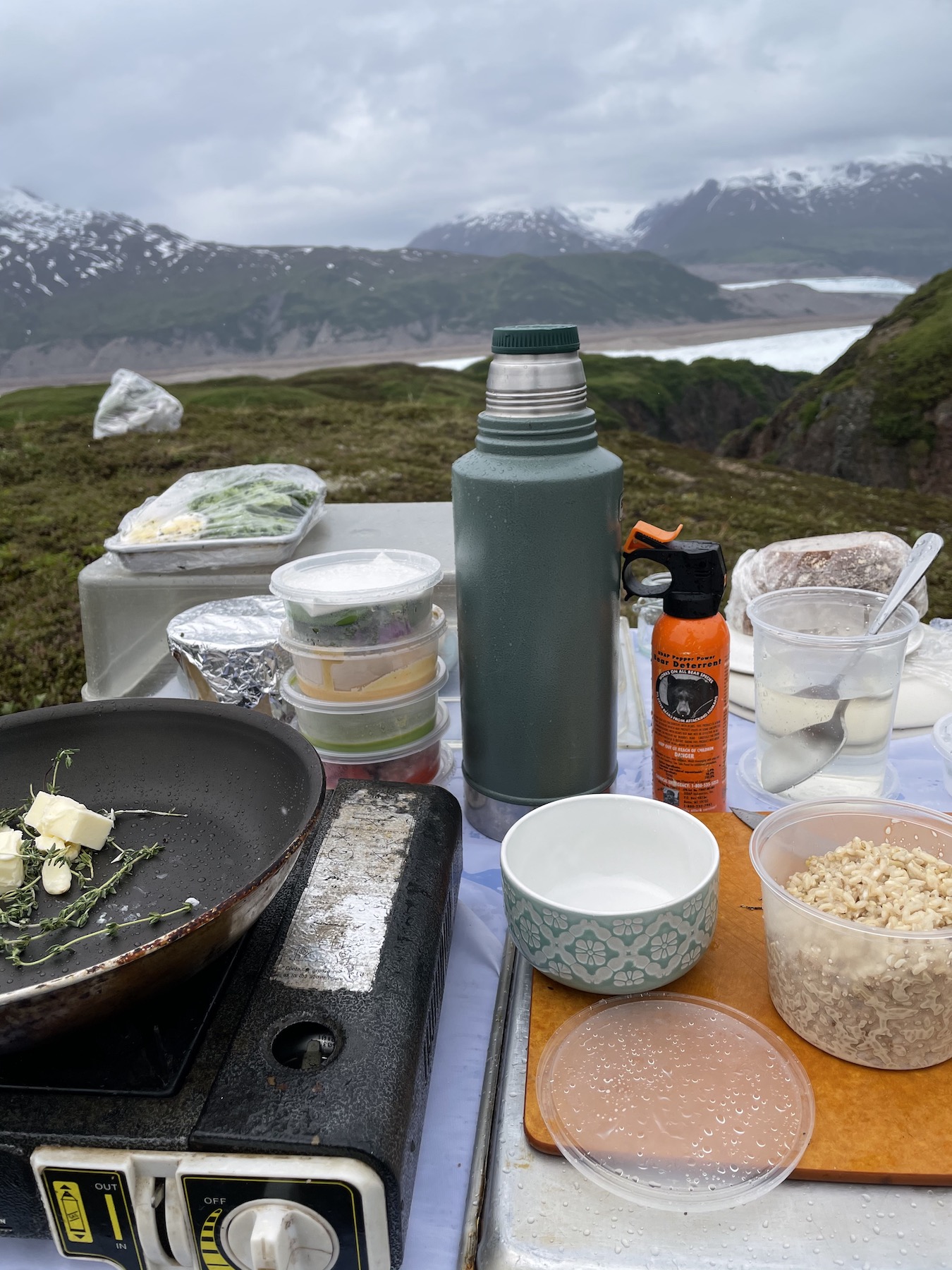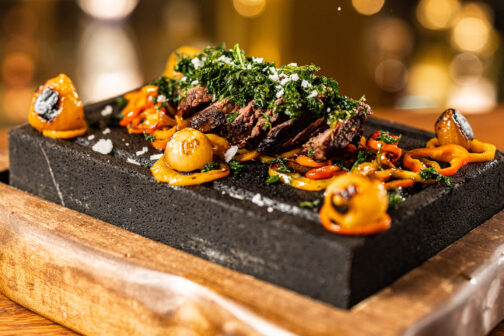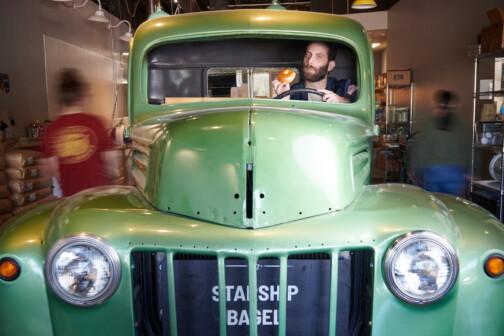Rene De Leon, executive chef at Anise in The Village, worked three seasons of his coronavirus pandemic cooking at two wilderness lodges in Alaska. The lodges—operated by a company called Within the Wild—are both far from any roads or towns, let alone groceries. But De Leon says now that his stints in Alaska are some of his favorite memories from a career that includes stops at Alinea and Next in Chicago, Bullion in Dallas, and restaurants in Nashville and Austin.
I chatted with De Leon about his experiences out in the wild, unusual Alaskan ingredients, and his foraging competition with a hungry bear.
Q. There was no road to the resort. How did you get food and supplies?
You’re 100 miles away from anything. You get to Anchorage and there’s no TSA or metal detector, just a little plane. You have to get on a scale. That’s how all the food arrived too. That was one of the top three challenges. As a chef, I always know how much I’m ordering, but for this, I had to know how much the packing weighed, how much the box weighed, how much a case of eggs weighs. If it doesn’t fit on the plane, safety first. If someone brings a dog or a passenger weighs more than they expected, you lose [ingredients].
Both resorts have high tunnels, which is like a greenhouse garden. And each had at least two gardens. Down in Homer, there were a lot more things you can forage for than what we had at the other resort. We had blueberries, wild roses, spruces. All of the fishing we would put back in the water, we never had fish, but [our boss] would source some of the unique items. He would bring moose. You wouldn’t know it was coming, he would just say, “I got moose!”
It was a super lean piece of shoulder meat, the moose. We would do a meat and cheese board, and we made a bresaola out of moose shoulder and we sliced it really thin. It was delicious. It was a really lean piece of meat, so it seemed smart to shave it really thin.
Q. What were some other unusual things you cooked at the lodge?
We took halibut and salted it and dehydrated it. I would take my scraps and salt them, and I put a boatload of spruce into that. And then after that, I was shaving it into soups, like you would do bonito. I’m not René Redzepi, but it was cool to try to come up with interesting things to do to preserve ingredients.
Smelt and smelt roe, those were interesting. When they lay their eggs in the water they lay them on all these branches, so you have to cut the branch and bring the branch and shake the eggs off. They’re delicious. They’re kind of like tobiko, they have this big explosive pop.
They had local seaweed there. Instead of getting kombu from the store, I would have somebody harvest that stuff for me. They had one that wasn’t as thick or wide as the kombu that I’m familiar with. I would use it as a seasoning in broth, or I would braise it in an eel sauce flavor profile and cut it into strips and use it as a garnish.
The wild roses were my favorite thing. That kind of surprised me. We had been fermenting honey for one of our dishes, we had all these wild roses, and we cleaned them and put them in the honey. I was floored. I couldn’t believe how much the flavor transferred into the honey, and the aromatics as well. That was my favorite food item that I worked with.
The blueberries were the ones that everybody loved. The problem with that is that you’re competing with the bears. The bears love blueberries. You’ll go on a hike and see all these berries that are a week away, and then you come back and a bear’s got them all.
Q. Did you actually have encounters with bears or any other dangerous wildlife?
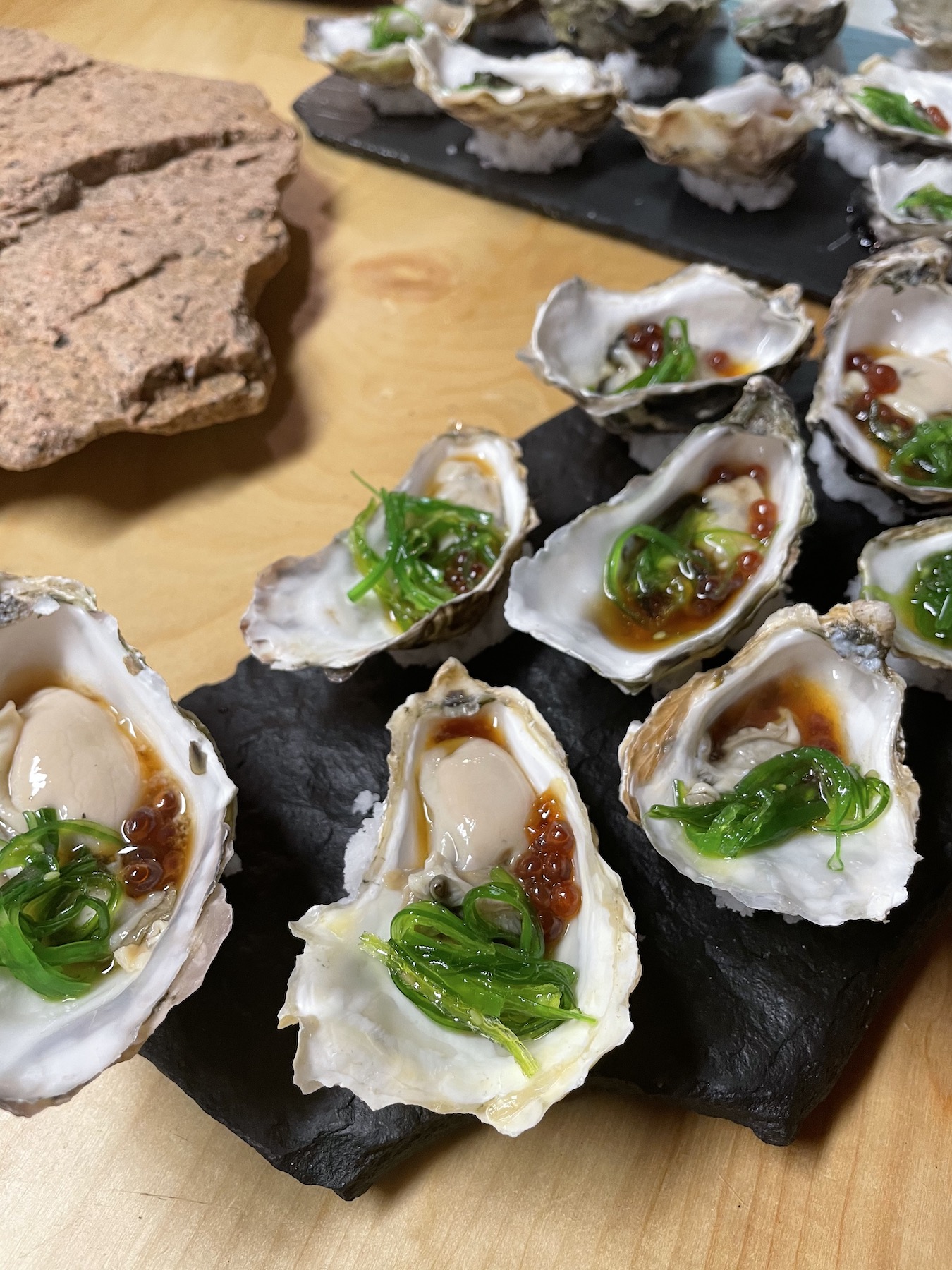
The black bears are the only ones I ever dealt with on my own. Both summers, there were instances where a guy got bluff charged. You learn to stand your ground, don’t run away. They always told me, there are two exceptions to the thing we just told you, if there’s food in between you and the bear, slowly back away, or if it’s a mama with babies. Of course, the first thing I saw was a mom with three cubs. In the lodge at least there’s a false sense of protection around me. Out in the field, I was pretty scared.
I did see moose, but never close enough for an encounter like that. Moose are idiots. The guides’ advice to us was ridiculous. It was literally, if you get in an encounter with a moose, find a tree and just play ring around the rosie. But moose are dangerous. Bears kill less people than moose do.
Sometimes we’d be about to serve a course at dinner and we’d be like, “stop, everybody go outside, there’s a moose swimming across the water!” So we’d all—customers, cooks, everyone—we’d all stop dinner for 15-20 minutes and go out and watch the moose.
Q. This sounds like the experience of a lifetime. Why did you come back?
I’d still be there, but at some point, I’d want a negroni and to watch Netflix and go eat ramen.
Get the SideDish Newsletter
Author



